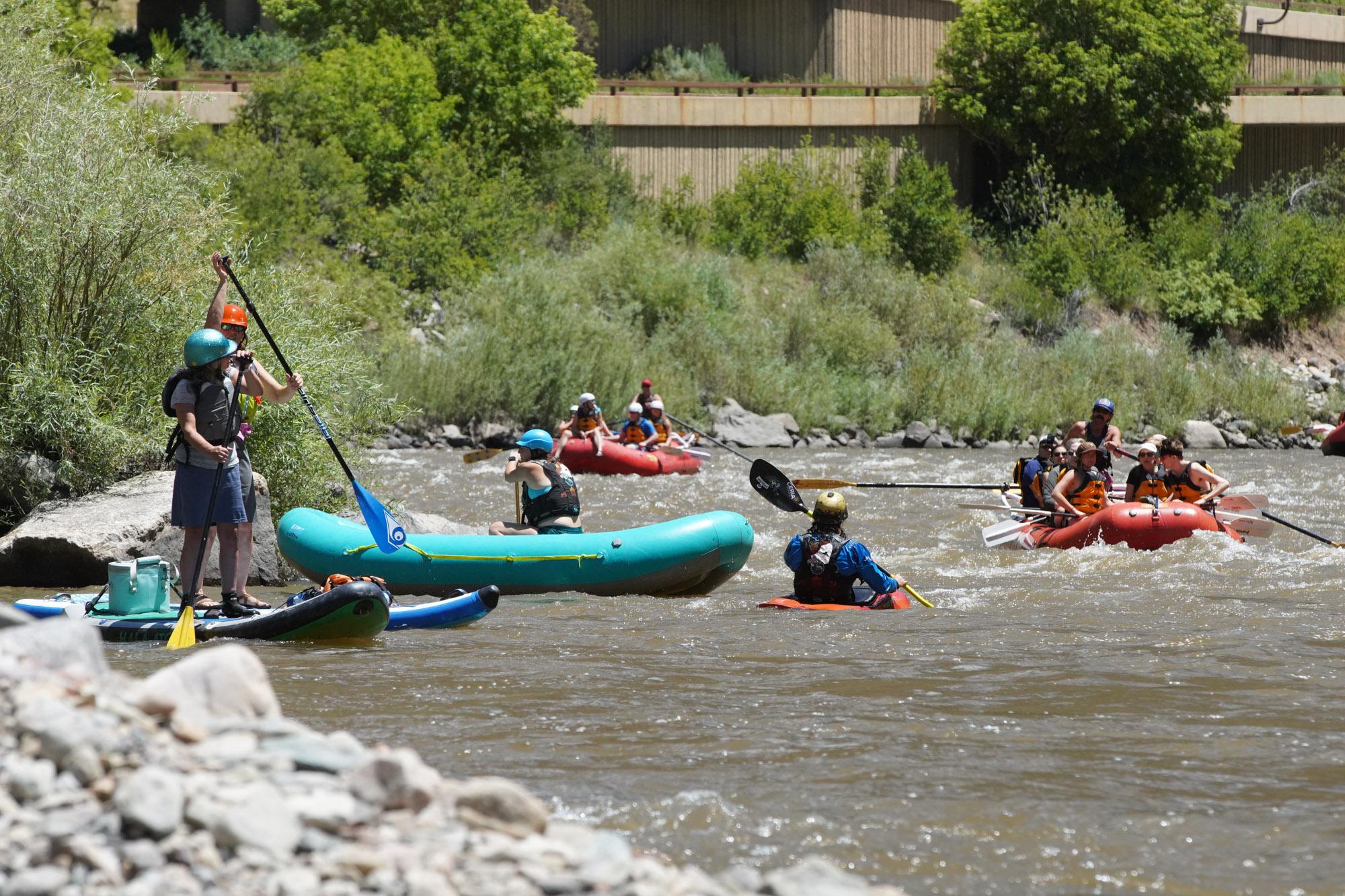
Updated Nov. 25, 2022 at 3:22 p.m.
This is officially the deadliest year in Colorado’s lakes, rivers and streams.
So far, nearly 40 people have drowned in state bodies of water in 2022, according to Colorado Parks and Wildlife and other sources. That surpasses the 34 water-related deaths the state recorded in 2020. These numbers also include non-recreational water-related deaths, like the two deaths in the Crystal Mountain flash flood in July.
The latest tragedy comes out of Roxborough Park in Douglas County.
A group of children broke through the icy surface of a lake in the area on Thanksgiving week, with one dying, according to the Douglas County Coroner's Office.
The body of a teenage boy was retrieved by West Metro Fire Rescue’s dive team from Crystal Lake about a half hour after the first 911 call. He was transported to the hospital and later declared dead. The other children — three girls and one boy — fell in closer to shore and were rescued by neighbors using hoses, extension cords and ropes. West Metro Fire Rescue says they’re fine.
This followed a death in late October, when CPW rangers at Corn Lake in Grand Junction recovered the body of a paddle boarder who fell into the water without a life jacket.
Officials began issuing alerts about the rising number of drownings at the beginning of summer, when it became clear that the state was on pace for a record year. By mid-July, the number of drownings was within 10 of the record.
Grant Brown, the boat safety and registrations program manager with Colorado Parks and Wildlife, said as autumn arrives, people should be aware that water will get colder even when air temperatures remain relatively warm.
“As it starts getting colder out, just be aware of the cold water immersion risk and dress accordingly for the conditions,” Brown said.
Shock from being immersed suddenly in cold water could cause dramatic changes in breathing, heart rate and blood pressure. Hypothermia can begin to set in when your body’s temperature drops to 95 degrees, which can happen in the first 1 to 3 minutes of cold water shock. Depending on the temperature of the water, death from hypothermia could occur in under 30 minutes.
Most water-related deaths this year have come from people falling into the water without wearing a life jacket. It is illegal to go out on the water without a personal floatation device. Some state parks, like Lake Pueblo and Chatfield State Park, have free loaner programs for those who forget one at home.
Brown said his team has been working with parks across the state to see where more life jacket stations are needed.
Editor's note: CPW incorrectly reported the number of drownings this year as 37 when contacted for this story. The agency later clarified the overall number of deaths was 36.
Following this story's publication, CPW began separating recreation-related water deaths from non-recreation water deaths. The number of recreation-related deaths was listed as 34 at that point. Two additional deaths on Lake Pueblo reported Oct. 24, 2022 are being investigated as drownings. If confirmed, they would put the recreation-related count at 36 deaths. The overall number of water deaths in Colorado would then be at 38.








